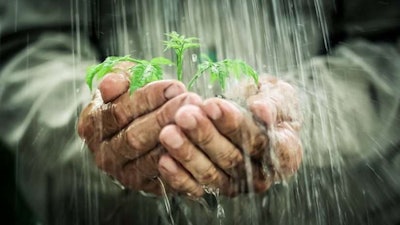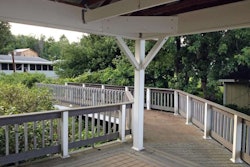
While the manual may have originally been made with a specific state in mind, all states and landscapers can benefit from the knowledge included.
Many New Jersey landscapers have already incorporated organic services into their businesses, but there is still confusion among the industry’s clients about what “going organic” really means. To remedy that question, Rutgers says that this guide provides clarification as well as assists professionals in determining what is and is not considered organic landscaping.
Rutgers stresses the fact that simply substituting products that are “organic-approved” for synthetic materials does not necessarily mean you are taking your clients into the realm of organic landscaping. Just because a customer wants to use organic pesticides or other organic products on the lawn doesn’t mean that the lawn is organic. Organic land care involves treating the landscape as an entire living system where the plants, animals and soil are all interdependent and can sustain each other.
When helping your customers transition to an organic landscape, the overall goal should be to create a healthy garden and lawn that are self-sustaining with very few product and material inputs. Overall, you should eliminate the use of synthetic soil amendments, synthetic pesticides and synthetic fertilizers.
Other practices organic landscapers can use are raising mower blades to at least 3 inches to promote deep root growth, determining soil health through soil testing and applying products based on soil test results only and utilizing native plants to help promote biodiversity and low-maintenance turfgrass varieties to converse water.
Along with covering site assessments, this new manual will also cover topics such as soil health, turf care, planting and caring for trees and shrubs, native and invasive plants, wildlife control, water conservation and weed and pest management. For many topics, the manual features both “recommended” and “not recommended” practices that landscapers can review to figure out what’s appropriate in an organic program.
Rutgers mentions the fact that this manual is not to be confused with the U.S. Department of Agriculture’s National Organic Program for agriculture, as that program provides federal standards for how to grow food organically and to which producers must adhere to be organically certified.
Currently there are no federal standards for organic land care, but the new manual does incorporate many recommendations from the federal guidelines for agriculture. Rutgers says its manual was written by Rutgers staff and industry professionals and is meant to provide guidance in the absence of those standards.
Local landscapers who have met the requirements of this program will be listed on a Rutgers online database where residents can search for landscapers by county. Click here to view the manual.










